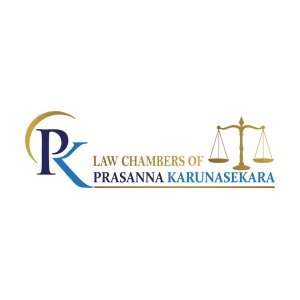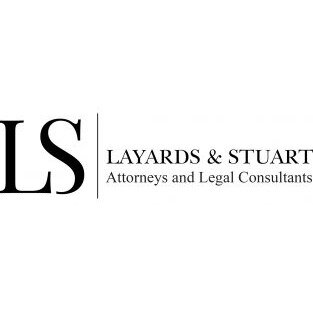Best Acquisition / Leveraged Finance Lawyers in Sri Lanka
Share your needs with us, get contacted by law firms.
Free. Takes 2 min.
Or refine your search by selecting a city:
List of the best lawyers in Sri Lanka
About Acquisition / Leveraged Finance Law in Sri Lanka
Acquisition and leveraged finance law in Sri Lanka refers to the legal frameworks and processes governing the use of debt or loan capital for acquiring companies, business assets, or funding corporate transactions. Acquisition finance involves structuring and implementing financial arrangements to enable purchases such as mergers, acquisitions, and takeovers, while leveraged finance relates to financing strategies that use significant amounts of borrowed money. In Sri Lanka, these transactions are subject to local company law, banking regulations, tax considerations, foreign exchange laws, and sector-specific directives. The aim is to ensure that such complex commercial deals follow local legal requirements and safeguard the interests of all parties involved.
Why You May Need a Lawyer
Acquisition and leveraged finance are complex areas involving multifaceted legal and regulatory considerations. You may need a lawyer if you are:
- Acquiring or selling a business entity in Sri Lanka
- Negotiating loan agreements for mergers or takeovers
- Structuring cross-border acquisition finance transactions
- Dealing with local or foreign lenders, banks, or financial institutions
- Drafting and reviewing security documentation (such as charges and mortgages)
- Ensuring regulatory compliance from the Central Bank of Sri Lanka or other authorities
- Assessing potential risks and liabilities in acquisition deals
- Addressing issues related to shareholder approval, competition law, or sector-specific regulations
Legal assistance ensures that your transaction is enforceable, compliant with all Sri Lankan laws, and protects your financial interests.
Local Laws Overview
Several local laws and regulatory frameworks directly affect acquisition and leveraged finance in Sri Lanka:
- Companies Act No. 7 of 2007: Governs procedures for share transfers, mergers, and acquisitions, as well as directors’ duties and shareholder rights.
- Banking Act No. 30 of 1988: Provides the regulatory foundation for banks and financial institutions involved in financing acquisition deals.
- Exchange Control Act: Regulates issues around foreign currency, especially critical in cross-border transactions.
- Securities and Exchange Commission (SEC) Act: Oversees financing transactions involving public companies or listed entities.
- Inland Revenue Act: Imposes tax implications on acquisition and leveraged finance deals, including stamp duty and withholding tax.
- Secured Transactions (Securing Interests) Act: Sets out requirements for registering security interests over movable property.
- Competition Law: Addresses anti-competitive or monopoly concerns in acquisitions.
- Central Bank Policies: Guides lending, capital adequacy, and reporting requirements for financial institutions.
Complying with these regulations is mandatory for all acquisition and leveraged finance transactions in Sri Lanka.
Frequently Asked Questions
What is leveraged finance and how does it work in Sri Lanka?
Leveraged finance refers to the use of borrowed money to fund an acquisition or a business expansion. In Sri Lanka, this typically involves banks or financial institutions providing loans secured by the assets of the company being acquired or those of the acquiring company, with strict regulatory oversight.
Can foreign investors participate in leveraged buyouts in Sri Lanka?
Yes, foreign investors can participate, subject to compliance with foreign exchange regulations, sector-specific investment restrictions, and necessary approvals from the Central Bank and the Board of Investment of Sri Lanka.
What are the main security documents used in acquisition finance?
Common security documents include debentures, mortgages over land and buildings, charges over shares or assets, assignments of receivables, and guarantees by parent or related companies.
Is regulatory approval needed for all acquisitions?
Not all acquisitions require regulatory approval, but deals involving regulated sectors (like banking, insurance, or telecommunications), large public companies, or foreign investment will typically require approval from the relevant authorities.
How are loans for acquisitions usually structured in Sri Lanka?
Loans may be structured as term loans, revolving credit facilities, syndicated loans, or mezzanine financing. Terms are negotiated with the lender and may include covenants, security, repayment schedules, and interest rate arrangements.
What is due diligence and why is it important?
Due diligence is a comprehensive legal and financial investigation of the target company or assets. It identifies risks, evaluates compliance, and reveals any potential liabilities before proceeding with an acquisition.
Are there restrictions on leveraged finance for certain industries?
Yes, certain sectors may have investment caps, prior approval requirements, or are subject to additional scrutiny such as in banking, insurance, or natural resources. Legal advice is essential to identify and navigate these restrictions.
What are the tax implications of acquisition finance transactions?
Tax implications may include stamp duty, transfer taxes, and withholding taxes. The structure of the financing and acquisition method can impact the overall tax burden. Consulting a tax specialist is recommended.
What happens if a borrower defaults on a leveraged finance loan?
On default, lenders may enforce security, initiate legal action to recover outstanding amounts, or even take control of pledged assets or shares. The specific remedies depend on the loan documentation and the nature of the security provided.
How can a lawyer help with acquisition or leveraged finance deals?
A lawyer advises on structuring deals, drafting and negotiating documents, compliance with applicable laws, conducting due diligence, and liaising with regulators. Legal expertise protects all parties and increases the likelihood of a smooth, enforceable transaction.
Additional Resources
If you need more information or support regarding acquisition or leveraged finance in Sri Lanka, the following organizations may be valuable:
- Central Bank of Sri Lanka - For financial institution regulation and approvals
- Board of Investment of Sri Lanka - For foreign investment guidelines
- Securities and Exchange Commission of Sri Lanka - For public company transactions
- Registrar of Companies - For company incorporation and changes
- The Bar Association of Sri Lanka - For finding experienced legal professionals
- Institute of Chartered Accountants of Sri Lanka - For accounting and tax advice related to finance transactions
Next Steps
If you are considering or currently involved in an acquisition or leveraged finance transaction in Sri Lanka, here is how you can proceed:
- Consult a qualified lawyer with experience in acquisition and finance law
- Gather all documentation related to your intended transaction
- Seek advice regarding due diligence, potential risks, and compliance matters
- Engage professional advisors for financial, tax, and regulatory consultation
- Ensure clear lines of communication with your legal, financial, and business teams
- Proceed only after thorough review and with all necessary approvals
Professional legal guidance is crucial to ensure that your acquisition or leveraged finance transaction is valid, compliant, and achieves your objectives while minimizing risk.
Lawzana helps you find the best lawyers and law firms in Sri Lanka through a curated and pre-screened list of qualified legal professionals. Our platform offers rankings and detailed profiles of attorneys and law firms, allowing you to compare based on practice areas, including Acquisition / Leveraged Finance, experience, and client feedback.
Each profile includes a description of the firm's areas of practice, client reviews, team members and partners, year of establishment, spoken languages, office locations, contact information, social media presence, and any published articles or resources. Most firms on our platform speak English and are experienced in both local and international legal matters.
Get a quote from top-rated law firms in Sri Lanka — quickly, securely, and without unnecessary hassle.
Disclaimer:
The information provided on this page is for general informational purposes only and does not constitute legal advice. While we strive to ensure the accuracy and relevance of the content, legal information may change over time, and interpretations of the law can vary. You should always consult with a qualified legal professional for advice specific to your situation.
We disclaim all liability for actions taken or not taken based on the content of this page. If you believe any information is incorrect or outdated, please contact us, and we will review and update it where appropriate.
Browse acquisition / leveraged finance law firms by city in Sri Lanka
Refine your search by selecting a city.

















